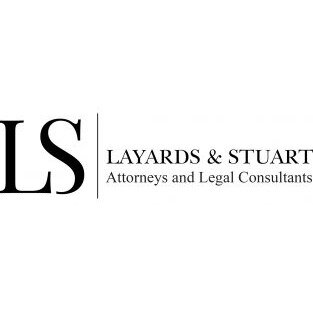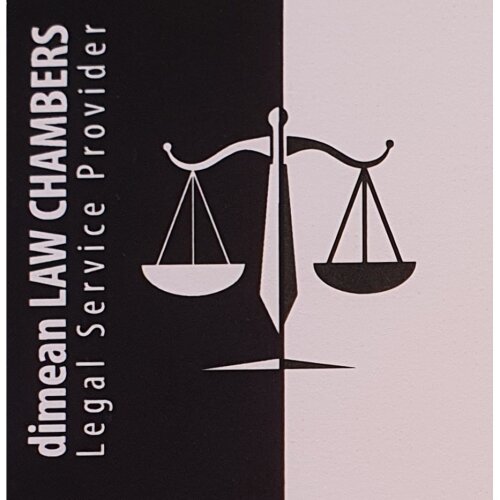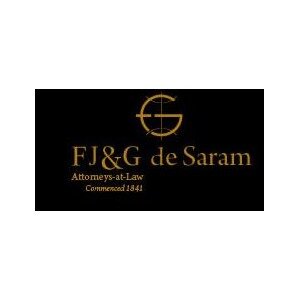Best Labor Law Lawyers in Sri Lanka
Share your needs with us, get contacted by law firms.
Free. Takes 2 min.
Or refine your search by selecting a city:
List of the best lawyers in Sri Lanka
About Labor Law in Sri Lanka
Labor law in Sri Lanka governs the relationship between employers and employees, ensuring fair treatment, workplace safety, and appropriate compensation. The legal framework comprises statutes, regulations, customs, and case law. Key legislations include the Factories Ordinance, Shop and Office Employees Act, Employment of Women, Young Persons, and Children Act, and the Termination of Employment of Workmen Act, among others. These laws protect both the rights of employees and the responsibilities of employers by setting standards for wages, working hours, contract terms, termination conditions, and occupational health and safety.
Why You May Need a Lawyer
Seeking legal advice in the field of labor law might be necessary due to various situations, such as:
- Understanding employment contracts and ensuring they comply with Sri Lankan laws.
- Handling disputes regarding wrongful termination or unfair dismissal.
- Addressing issues related to workplace discrimination or harassment.
- Negotiating collective bargaining agreements for unions or representing employers.
- Adhering to labor compliance issues, including maintaining proper wage and hour practices.
- Assisting with occupational safety and health claims.
Local Laws Overview
Some key aspects of labor laws in Sri Lanka include:
- Employment Contracts: Regulate employment relationships, including terms of service and conditions.
- Working Hours and Overtime: Laws specify maximum working hours and conditions under which overtime should be paid.
- Minimum Wages: The Wage Boards Ordinance sets minimum wage levels for different sectors.
- Termination of Employment: Specific laws like the Termination of Employment Act protect employees from unfair dismissal.
- Workplace Safety: The Factories Ordinance ensures the health, safety, and welfare of workers.
- Leave Entitlements: Employees are entitled to various leave types including annual, maternity, and sick leave.
Frequently Asked Questions
What is the minimum wage in Sri Lanka?
The minimum wage in Sri Lanka is determined by sector-specific Wage Boards, which issue regulations that stipulate minimum rates of pay.
How are working hours regulated in Sri Lanka?
Working hours are typically regulated under the Shop and Office Employees Act, which sets maximum daily and weekly hours and mandates overtime pay for additional hours worked.
Can an employer terminate an employee without notice?
No, employers must provide notice or payment in lieu thereof and comply with statutory requirements under the Termination of Employment of Workmen Act.
What rights do employees have regarding leave?
Employees are entitled to annual leave, public holidays, and specified maternity or sick leave according to the Shop and Office Employees Act.
What are the obligations of an employer regarding workplace safety?
Employers are obliged to ensure the safety, health, and welfare of employees as stipulated in the Factories Ordinance, including hazard identification and control measures.
How can collective bargaining be initiated?
Employees can join trade unions, which can negotiate collective bargaining agreements with the employer on their behalf.
What constitutes unfair dismissal?
Unfair dismissal involves terminating an employee without reasonable justification or without following proper legal procedures.
Are there laws protecting employees against discrimination?
Yes, employees are protected against discrimination based on gender, race, religion, and other factors under various statutes and the general principles of equality guaranteed by the Constitution.
Can foreign employees work in Sri Lanka?
Yes, but they must obtain the necessary visas and work permits as per immigration regulations and may be subject to specific contractual terms.
What steps should I take if I experience workplace harassment?
Employees experiencing harassment should report the matter to their HR department and may seek legal counsel to ensure the matter is handled appropriately under applicable laws.
Additional Resources
Here are some resources and organizations that can be helpful:
- Department of Labour, Sri Lanka
- National Institute for Occupational Safety and Health (NIOSH), Sri Lanka
- The Employers’ Federation of Ceylon
- The Ceylon Workers' Congress
- Lawyers and law firms specializing in labor law
Next Steps
If you require legal assistance in labor law, consider taking the following steps:
- Identify the specific area of labor law you need assistance with (e.g., contract review, dispute resolution).
- Consult with a lawyer who specializes in labor law to receive specialized advice and guidance tailored to your needs.
- Prepare any necessary documentation or evidence that may support your case when consulting a lawyer.
- Consider alternative dispute resolution options, such as mediation or arbitration, if appropriate.
- Keep informed about your rights and responsibilities to prevent potential legal issues in the future.
Lawzana helps you find the best lawyers and law firms in Sri Lanka through a curated and pre-screened list of qualified legal professionals. Our platform offers rankings and detailed profiles of attorneys and law firms, allowing you to compare based on practice areas, including Labor Law, experience, and client feedback.
Each profile includes a description of the firm's areas of practice, client reviews, team members and partners, year of establishment, spoken languages, office locations, contact information, social media presence, and any published articles or resources. Most firms on our platform speak English and are experienced in both local and international legal matters.
Get a quote from top-rated law firms in Sri Lanka — quickly, securely, and without unnecessary hassle.
Disclaimer:
The information provided on this page is for general informational purposes only and does not constitute legal advice. While we strive to ensure the accuracy and relevance of the content, legal information may change over time, and interpretations of the law can vary. You should always consult with a qualified legal professional for advice specific to your situation.
We disclaim all liability for actions taken or not taken based on the content of this page. If you believe any information is incorrect or outdated, please contact us, and we will review and update it where appropriate.
Browse labor law law firms by city in Sri Lanka
Refine your search by selecting a city.

















